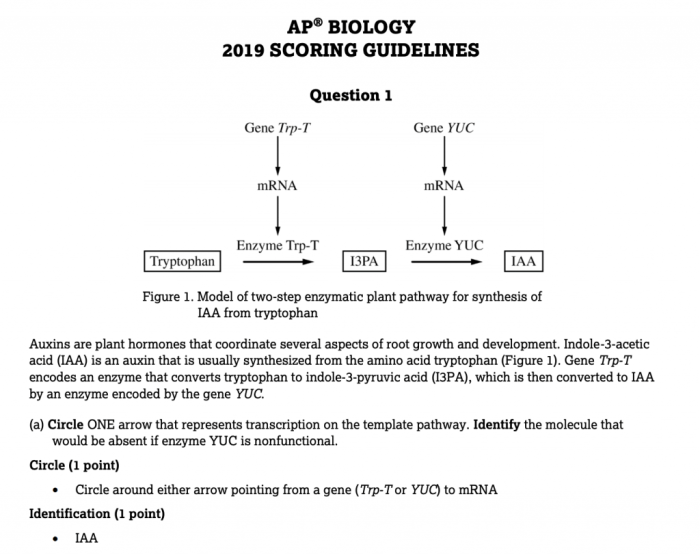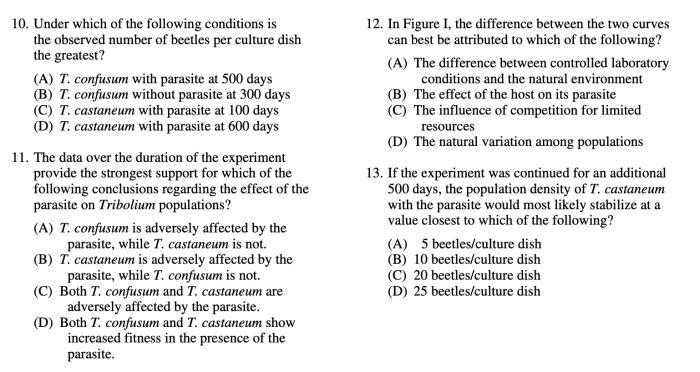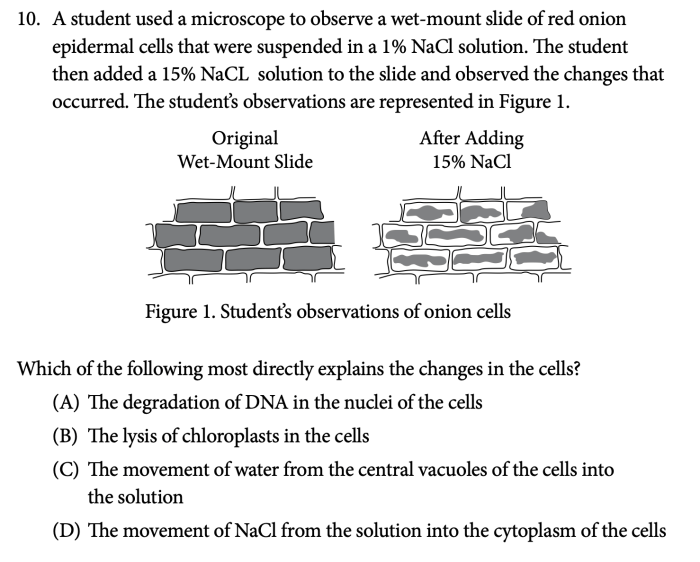The Unit 5 AP Biology Practice Test is a valuable tool for students preparing for the Advanced Placement Biology exam. It provides a comprehensive overview of the content covered on the test, including key concepts, practice questions, and test-taking strategies.
By utilizing this practice test, students can identify areas where they need additional study and develop the skills necessary to succeed on the actual exam.
This guide will provide an in-depth analysis of the Unit 5 AP Biology Practice Test, including its purpose, structure, content areas, and tips for effective preparation. Additionally, it will offer practice questions, time management strategies, and additional resources to enhance students’ understanding of the material and maximize their performance on the exam.
Overview of Unit 5 AP Biology Practice Test

The Unit 5 AP Biology Practice Test is designed to assess your understanding of the content covered in Unit 5: Heredity. This test will help you identify areas where you need additional review and practice.
The test is divided into two sections:
- Multiple Choice
- Free Response
The multiple-choice section consists of 60 questions that cover all of the content in Unit 5. The free-response section consists of two essay questions that require you to apply your knowledge of the content to new situations.
Tips for Preparing for the Test
- Review the course syllabus and make sure that you are familiar with all of the topics that will be covered on the test.
- Take practice tests and review your answers to identify areas where you need additional review.
- Use flashcards or other study tools to help you memorize key terms and concepts.
- Get a good night’s sleep before the test and eat a healthy breakfast on the day of the test.
Key Concepts and Topics
Unit 5 of the AP Biology exam assesses students’ understanding of fundamental biological concepts and processes. Mastery of these topics is crucial for success on the test.
Key concepts tested include:
- Evolution: The process of genetic change over time, including natural selection, genetic drift, and gene flow.
- Ecology: The interactions between organisms and their environment, including population dynamics, community structure, and ecosystem function.
- Behavior: The study of animal behavior, including innate and learned behaviors, communication, and social interactions.
Evolution
Evolutionary concepts tested include:
- Evidence for evolution, such as comparative anatomy, fossil record, and molecular data.
- Mechanisms of evolution, including natural selection, genetic drift, and gene flow.
- Evolutionary history and patterns, including the tree of life and major evolutionary events.
Ecology
Ecological concepts tested include:
- Population ecology, including population growth, carrying capacity, and population regulation.
- Community ecology, including species interactions, community structure, and succession.
- Ecosystem ecology, including energy flow, nutrient cycling, and ecosystem services.
Behavior
Behavioral concepts tested include:
- Innate and learned behaviors, including instincts, reflexes, and conditioning.
- Communication, including signals, pheromones, and displays.
- Social interactions, including cooperation, competition, and altruism.
Practice Questions and Strategies

Practice questions are an essential part of preparing for the AP Biology exam. They allow you to test your understanding of the content, identify areas where you need more review, and develop strategies for answering different types of questions.
The table below provides a variety of practice questions that cover different content areas and difficulty levels. Each question is accompanied by a detailed solution and explanation.
Question Types
| Question Type | Difficulty Level | Content Area | Solution |
|---|---|---|---|
| Multiple Choice | Easy | Cell Structure and Function | Which of the following is not a function of the cell membrane? |
| Free Response | Medium | Genetics | Describe the process of meiosis. |
| Data Analysis | Hard | Evolution | Analyze the data in the table below to determine the relationship between beak size and body size in finches. |
Strategies
In addition to practicing questions, there are a number of strategies that you can use to improve your performance on the AP Biology exam.
- Start studying early. The AP Biology exam covers a lot of material, so it is important to start studying early and give yourself plenty of time to review.
- Break down the material into smaller chunks. The AP Biology exam is divided into four units. Breaking down the material into smaller chunks will make it easier to focus on and remember.
- Use practice questions to identify your strengths and weaknesses. Practice questions are a great way to identify areas where you need more review. Once you have identified your weaknesses, you can focus your studies on those areas.
li>Take practice exams under timed conditions. Taking practice exams under timed conditions will help you get used to the format of the exam and manage your time wisely.
Topic: Time Management and Test-Taking Strategies: Unit 5 Ap Biology Practice Test

Effective time management and strategic test-taking techniques are crucial for success on the AP Biology exam. Students must allocate time wisely, prioritize questions, and employ strategies to navigate challenging questions.
Time Management
The AP Biology exam consists of two sections: a multiple-choice section and a free-response section. Students have 90 minutes for the multiple-choice section and 90 minutes for the free-response section. It is essential to manage time effectively to complete all questions within the allotted time.
- Read the instructions carefully and allocate time accordingly. Determine the number of questions in each section and the time available per question.
- Use a watch or timer to track progress and stay on schedule.
- Pace yourself by answering easier questions first and returning to more challenging ones later.
- Skip questions that you are unsure about and return to them if time permits.
Question Selection
Students should prioritize questions based on their confidence and knowledge. This involves identifying questions that they can answer quickly and correctly.
- Start with questions that cover familiar concepts or topics.
- Read the questions carefully and identify s that indicate the specific content being tested.
- Eliminate answer choices that are clearly incorrect or irrelevant.
- Use the process of elimination to narrow down the possible answers.
Challenging Questions
Students may encounter challenging questions that require more time and effort. It is important to approach these questions strategically.
- Break down complex questions into smaller, more manageable parts.
- Focus on understanding the core concept being tested rather than memorizing specific details.
- Use diagrams or charts to visualize the problem and identify patterns.
- Don’t panic; take your time and work through the problem step-by-step.
Common Pitfalls
Students should be aware of common pitfalls that can lead to mistakes on the exam.
- Rushing through questions without carefully reading the instructions.
- Spending too much time on difficult questions and neglecting easier ones.
- Guessing randomly instead of using the process of elimination.
- Not reviewing answers and making careless mistakes.
Additional Resources and Support

In addition to the materials provided in this practice test, there are numerous resources available to help you prepare for the Unit 5 AP Biology Exam.
These resources include:
Online Study Materials
- AP Biology Course and Exam Description: Provides an overview of the exam content and format.
- Khan Academy AP Biology: Offers video lessons, practice questions, and full-length practice exams.
- Bozeman Science: Provides video lessons on a variety of AP Biology topics.
Practice Exams
- College Board Practice Exam: The official practice exam from the College Board.
- UWorld AP Biology Practice Questions: A collection of over 1,000 practice questions with detailed explanations.
- Varsity Tutors AP Biology Practice Tests: A set of full-length practice exams with answer keys.
Discussion Forums, Unit 5 ap biology practice test
- College Confidential: A discussion forum where students can ask questions and share tips about the AP Biology exam.
- Reddit AP Biology: A subreddit where students can discuss the exam and get help with specific questions.
- AP Central: The official College Board forum for AP students.
Other Support
In addition to these resources, you can also seek support from your teachers, tutors, or study groups. These individuals can provide you with personalized guidance and help you identify areas where you need additional support.
FAQ Insights
What is the purpose of the Unit 5 AP Biology Practice Test?
The purpose of the Unit 5 AP Biology Practice Test is to provide students with an opportunity to assess their understanding of the content covered in Unit 5 of the AP Biology curriculum and to practice their test-taking skills.
What content areas are covered on the Unit 5 AP Biology Practice Test?
The Unit 5 AP Biology Practice Test covers the following content areas: Cell Communication and Signaling, Cell Cycle, Meiosis, and Biotechnology.
How can I effectively prepare for the Unit 5 AP Biology Practice Test?
To effectively prepare for the Unit 5 AP Biology Practice Test, students should review the course material, practice answering different types of questions, and develop effective test-taking strategies.